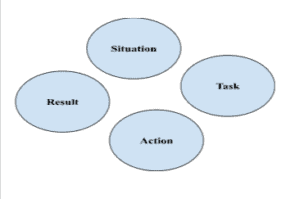Product Management is a growing industry. While dynamism is one term to describe the diverse field, cut-throat competition is another. As a new sector, there are a lot of misconceptions about the exact role of a product manager in NYC and how to become one.
The aspiring candidates go through a series of interview guides to find the best techniques which help them nail the interview. However, it’s not that simple.
Experts suggest understanding the roles and responsibilities of a PM is the first step to decoding the science behind product management. In short, your responses are based on your job profile.
For example, suppose you’re a product manager in the tech industry. In that case, most of your tasks will be focused on testing new technologies. In contrast, a PM in a design company will be more inclined to user experience.
Although there’s a thin line between the role you’ll play in different product companies, the difference still exists. So, before you start framing your answers from scratch, learn about your role comprehensively with the help of a topgrading interview guide on our website.
Nonetheless, there has been a sudden change in question types. Recruiters today are longer interested in ‘YES/NO’ answers. They want to know your personality in more detail. That’s why they ask you confusing open-ended questions.
Perhaps, the interviewer asked you one such question, but you couldn’t identify it and gave a plain YES. Don’t worry; it’ll not happen again. Here’s your pocket guide to open-ended questions, supplemented with four tips to help you frame brilliant answers. Keep reading!
What are Open-ended questions?
Were you ever asked– what keeps you motivated, how you manage a crisis, etc.?
If yes, hopefully, you replied in detail instead of one-two words answer.
The sole purpose of such questions is to analyze your personality. The interviewers ask them to gain an insight into your nature and how you’ll react to situations. This helps them understand whether you’ll fit the company right.
The simple hack to nail such product manager interview questions is by elaborating on relevant details and demonstrating the responder’s problem-solving capabilities.
Examples
Here are a few examples of open-ended questions that a product company’s hiring manager can ask you–
- How would you prioritize features in a product with a tight deadline and limited resources?
- Describe a situation where you had to influence stakeholders from different departments.
- Tell me about a challenging project and how you handled it.
- What is your approach to identifying and turning customer pain points into product features?
- How do you handle conflicts within your cross-functional team while keeping everyone motivated?
- Describe a time when you had to pivot your product strategy. How did you handle the change, and what was the outcome?
Sure-shot Ways of Answering Open-ended Interview Questions
From learning about effective communication to identifying customer needs, there’s much to consider. And you have to do it in only a few seconds. Tough, but possible.
Following are a few tricks to help you answer any open-ended product manager interview questions like a Pro–
Focus on Your Job Description
As mentioned above, being unfamiliar with your expected role in a company is like landing the wrong foot on stepping stones. No matter how good your communication skills are, there’s a chance your replies may be irrelevant to what your hiring manager asked.
To tackle it, your first step should be to read the job description carefully. It’ll give you an overview of what the company expects from you. Next, research about their business and how they usually work. You can get these details from their social media profiles. Lastly, do market research.
Limiting your knowledge to one company is never a good idea. Going through multiple businesses will help you understand what more the interviewing company can do to maximize their profits.
And, who knows, you may bring something new to the table. Plus, you’ll be HIRED!
Keep answers to the Point.
“I was a team lead who used to work hard in my previous company. I handled eight projects without relying on anyone. All my projects were brilliantly done without any delays. I even helped my juniors learn coding, marketing, and negotiation skills. Once free, I asked them to create a marketing plan for a cosmetics company that thrives on genuine promotion. They did an exceptional job as new joiners. Then, we kept this practice going, and we………”
Imagine getting a story like this to a simple question: Describe yourself in a few words.
Yes, the motto here is to keep the conversation interesting, but think like an interviewer for once. Nobody loves to learn more than they ask until they’re your friends or family.
It’s easy to drift from the topic when you have much to say. But your answers should be structured during the interview with a clear beginning, middle, and end. It maintains coherence, and you’ll not lose the listener’s attention (here, interviewer).
So, keep the answers short, concise, and to the point.
Add relevant examples
Examples are the secret ingredient to make listeners crave more details on how you did this or that. Leverage them.
Concrete examples will give life to your responses and demonstrate your experiences in action. Whenever possible, pick a real-life scenario to showcase your skills which helps the interviewer envision how you’d handle similar situations in their organization.
Use the STAR method.
While preparing for your interview, you must have found the STAR method in one of the top grading interview guides. It is used chiefly to structure your responses to behavioral questions. Here’s what it means–
- Situation: Describe the context and background of the scenario.
- Task: Explain the challenge or goal you need to accomplish.
- Action: Detail the steps you took to address the situation.
- Result: Share the outcome of your actions and the impact they had.
This method will help you develop well-organized and comprehensive responses to your interview questions.
Finally
The skill to tackle any open-ended question during your interview for product manager jobs lies in gaining an in-depth understanding of your role. You should know how your personal and previous job experience can fit into the hypothetical situations given to you.
Once you learn this, you’ll crack the interview and develop products catering to customers’ needs. For more tips & tricks on product management companies and product managers, explore our blog section.









